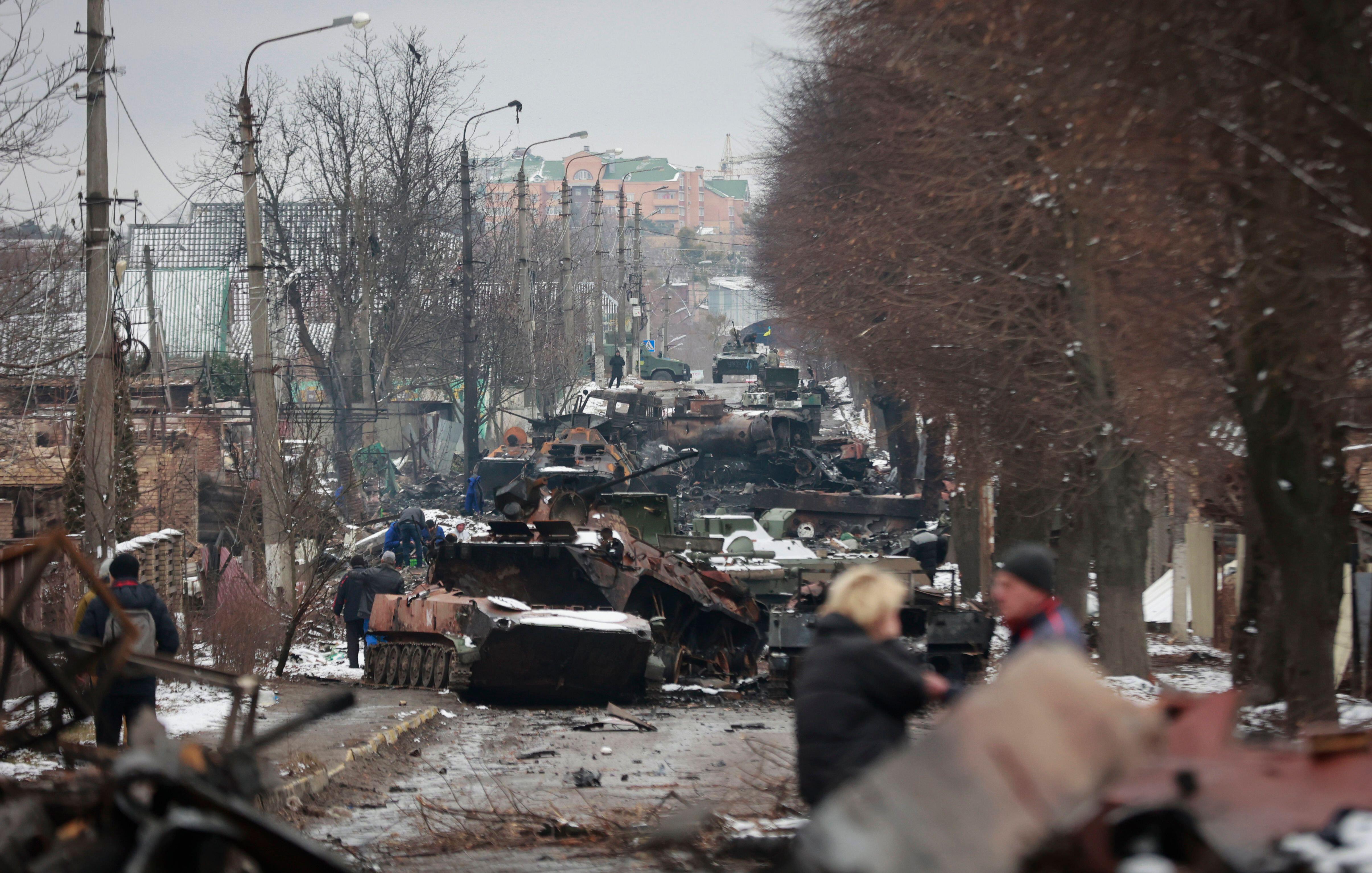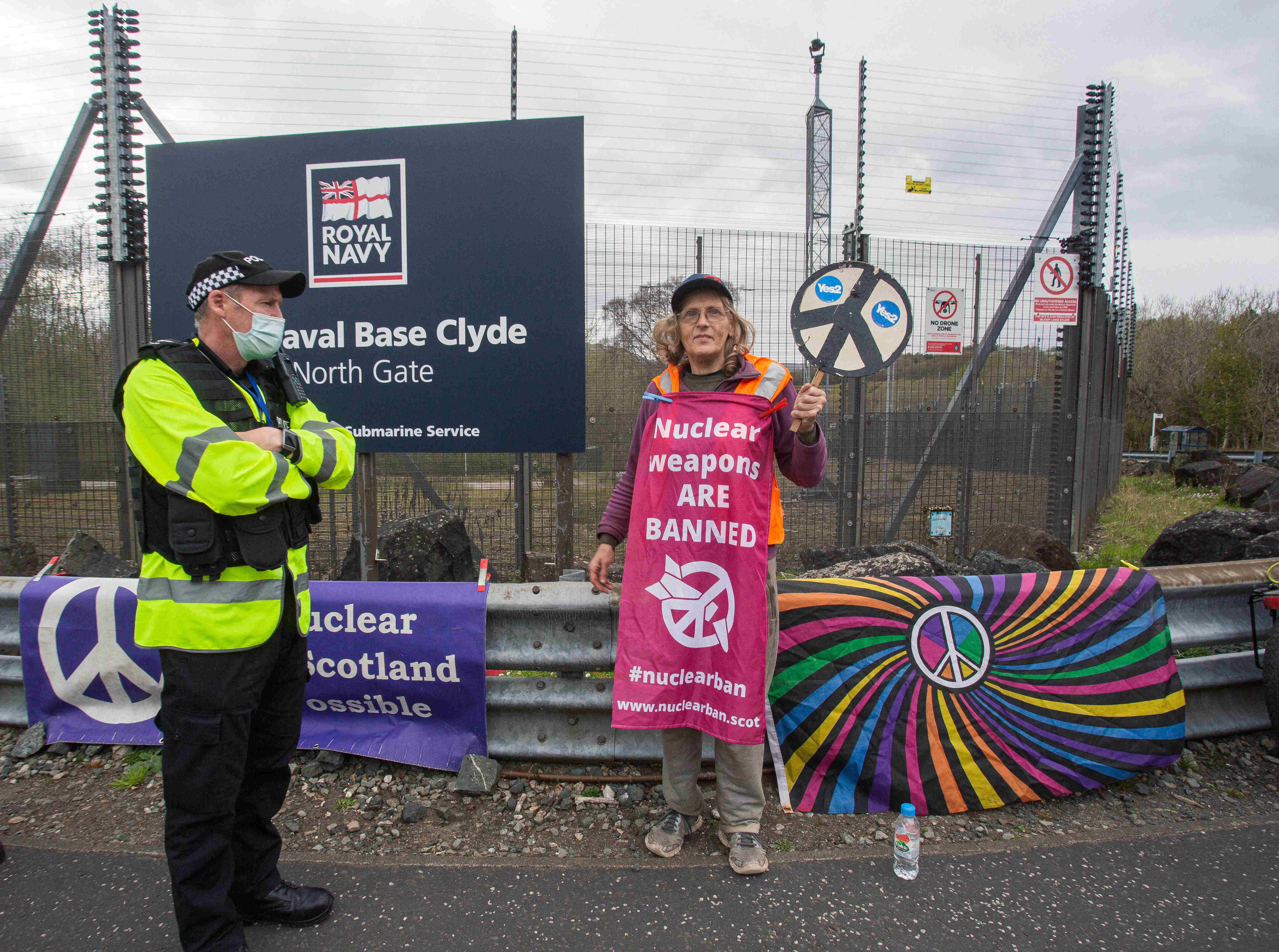Military Might: What would a vote for independence mean for Scotland's defence sector?
Prior to Russia’s invasion of Ukraine in February last year, most of Europe had been in a state of complacency, if not outright denial, about looming threats to peace. Despite Moscow’s invasion of Georgia in 2008 and its annexation of Crimea six years later, western leaders continued to cleave to an end-of-history interpretation in which democracy remained in the ascendancy as both the European Union and Nato expanded ever eastwards.
While the United Kingdom had been a willing participant in Washington’s War on Terror, sending troops to Afghanistan in 2001 and Iraq in 2003, there had not been a major conflict in Europe since the end of the hostilities in the former Yugoslavia which claimed more than 100,000 lives and saw two million people displaced.
Yet if many European allies had fallen into a state of somnambulism, they were shaken violently awake with the launch of Russia’s “special military operation”. Long-standing norms which had existed for decades came to an end. Both Finland and Sweden applied to join Nato while Germany dramatically increased defence spending in the light of Moscow’s aggression.
In the UK, Prime Minister Rishi Sunak has set out plans to increase defence spending to 2.5 per cent of GDP. Total defence spending in 2021/22 was £45.9bn, including more than £2bn spent on procurement in Scotland. Last year, the Scottish Affairs Committee at Westminster carried out an inquiry into the sector north of the border, concluding that it was “experiencing a new era of confidence and investment”.
But the committee of MPs also had concerns, namely that too many contracts are awarded to a small number of multinational contractors with just £25m spent in Scotland on small and medium-sized enterprises (SMEs). There were also concerns expressed about the relationship between the UK and Scottish governments, with ministers in Edinburgh complaining that they felt excluded from defence-related decision making affecting local communities, particularly regarding military bases.
Responding to the Scottish Government’s view that there was a deteriorating relationship on matters of defence, Baroness Goldie, a Minister of State at the MoD and a former leader of the Scottish Tories, told the committee, “I have to hold my hands up and say, ‘Mea culpa’ because it is my job to engage.”
The relationship is important because while matters of defence are reserved to Westminster, the sector is of both huge strategic and economic value to Scotland. In areas such as Argyll & Bute and Moray, MoD jobs account for 20 per cent of the workforce. The naval base at Faslane employs nearly 7,000 alone, making it the second largest single site employer in the country.
“There is a readiness that [in the coming years] we will probably have to spend more on defence,” says Professor Trevor Taylor, director of the Defence, Industries and Society Programme at the Royal United Services Institute (RUSI) and one of those who gave evidence to the Scottish Affairs Committee’s inquiry.
“There are trickier questions on whether we need to spend more on stocks, whether we need to spend more on making contractual arrangements for surge increases in production or whether we go for more simple systems which could be produced more quickly.”
 The aftermath of fighting in Bucha, Ukraine following the Russian invasion | Credit: Alamy
The aftermath of fighting in Bucha, Ukraine following the Russian invasion | Credit: Alamy
Projects already underway or signed off include a £4.2bn contract to build five new Type 26 frigates on the Clyde with contractor BAE Systems committed to investing £1.2bn in the UK supply chain during construction. In total, eight new warships are expected to be completed by the mid-2030s, with the first entering service by the end of 2028.
Elsewhere, aerospace company Leonardo, which employs 2,000 people in Edinburgh, is involved in the project to create the UK’s next generation of fighter jets alongside Italy and Japan. Called Tempest in the UK, the jets will be operational from 2035 and will serve as a successor to the Typhoon. Earlier this year, Leonardo shared in contracts worth £650m awarded by the MoD, part of the overall £2bn which the UK has already committed to the project.
Another winner is French firm Thales which employs over 700 people at Glasgow and Rosyth and is making the sonar and optronic masts for a new generation of nuclear powered submarines as part a trilateral security pact between Australia, the UK and the United States (AUKUS).
“They’ve all got a secure future provided they can deliver,” says Taylor.
Aimie Stone, chief economist at ADS Group, a trade association representing the aerospace, security, defence and space sectors, says the companies in Scotland, particularly the large multinationals (primes) which tend to win most of the government contracts, are enjoying are good period at the moment.
“In Scotland there a number of large primes which gives a really good indicator that there is confidence for the sector in Scotland,” she says. “Alongside defence, the space sector is huge in Scotland and the overlaps between the two adds another level of excitement around potential and possibilities.
“A lot of these big companies are building communities and investing in the infrastructure that’s required to keep jobs.”
But if the size of the defence sector is important to the overall economy, then the UK’s military importance to overall global security is increasingly up for debate. Despite efforts by Boris Johnson and Sunak to position Britain at the centre of the defence of Ukraine, the UK’s reputation has taken a bit of a battering of late, with US sources telling Sky News the army is no longer regarded as a top-level fighting force. According to the broadcaster, the armed forces would run out of ammunition “in a few days” if called upon to fight and would be unable to defend Britain’s skies against the kind of missile and drone strikes currently being endured by Ukraine.
Defence secretary Ben Wallace, a former MSP who was recently linked with the Nato secretary-general position, has urged Chancellor Jeremy Hunt to set out a clear timetable for increasing defence spending from 2.1 per cent to 2.5 per cent of GDP, as promised by the prime minister. According to analysis by RUSI, such an increase would require additional spending of £14bn in 2029-30, and an additional £42bn over the five years of the next parliament.
Speaking to the Financial Times in May, Wallace said the world was coming to the end of an “abnormal period” of post-Cold War peace.
“By the end of the decade, the world will be a more dangerous, unstable place and defence will be more critical to our lives,” he said. “I think a conflict is coming, whether it’s hot or cold is to be seen . . . I think a conflict is coming with a range of adversaries around the world . . . We need to all be prepared for it.”
Another issue which may or may not need to be navigated in the long term is what happens to the UK’s defence capabilities should Scotland vote for independence. Indeed, a UK Government report published ahead of the last referendum said that Scotland leaving the United Kingdom would have “profound consequences for the national security” of both parties.
Publishing the latest in a series of Scottish Government white papers on independence last month, First Minister Humza Yousaf made it clear that an independent Scotland would pursue a policy of nuclear disarmament and begin negotiations over the removal of those currently based at Faslane.
An independent Scotland would, however, maintain armed forces which would “defend and protect Scotland’s interests from external aggression… and participate in international humanitarian and peacekeeping missions”. The white paper said Scotland’s armed forces would “seek to be a force for good and peace in the world”.
While the matter of what happens to the UK’s nuclear submarines in the event of independence is highly classified, Taylor says there must be a “Plan B” under consideration. But he also believes there would be wider knock-on effects to the industry as a whole north of the border.
“If Scotland were to become independent, then a great chunk of the [defence] businesses that are currently in Scotland would be moved,” he says. “The reason for that is firstly, why should a government in London chose to spend its money in Scotland if Scotland chooses to be independent?
 A protester takes part in a demonstration at Faslane | Credit: Alamy
A protester takes part in a demonstration at Faslane | Credit: Alamy
“And then there’s all kinds of technical arguments that Scotland would need an export control law and the UK would struggle to give foreign citizens (which the Scots would be) security clearances. It would all just be terribly difficult and would likely affect American choices as well. Defence is a highly regulated set of activities and also highly sensitive… so it would be very disruptive.”
The current ongoing geopolitical uncertainty was underlined again at the end of last month when Yevgeny Prigozhin, once a hot dog salesman and caterer to the Kremlin, led his army of mercenaries in a rebellion which some believed to be the start of a military coup in Russia. The uprising was quickly quelled when Prigozhin was allowed to escape to Belarus, but it raised serious questions about the stability of the government in one of the world’s largest nuclear powers.
At least for the time being, the UK is a unitary state. There will, of course, be those who believe Scotland would be safer outside it and would be free to avoid some of the military mistakes, namely the war in Iraq, which Britain has been guilty of making in the recent past. In a world which appears to becoming more volatile by the year, who knows what the future will hold.
Holyrood Newsletters
Holyrood provides comprehensive coverage of Scottish politics, offering award-winning reporting and analysis: Subscribe